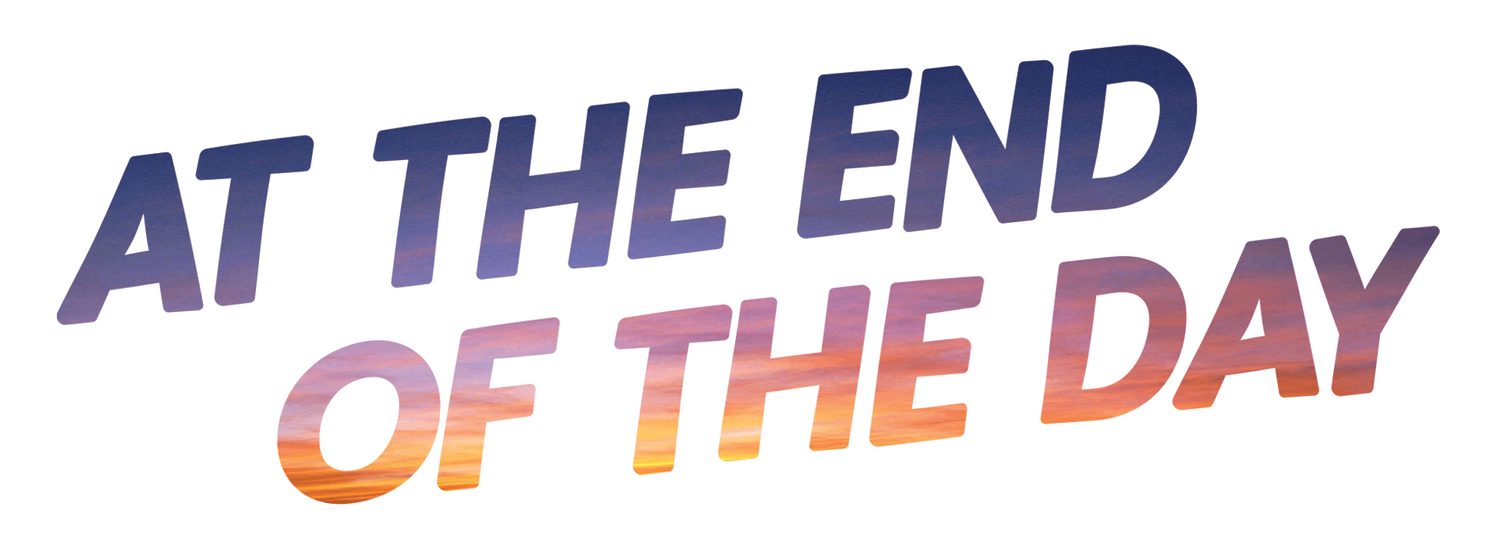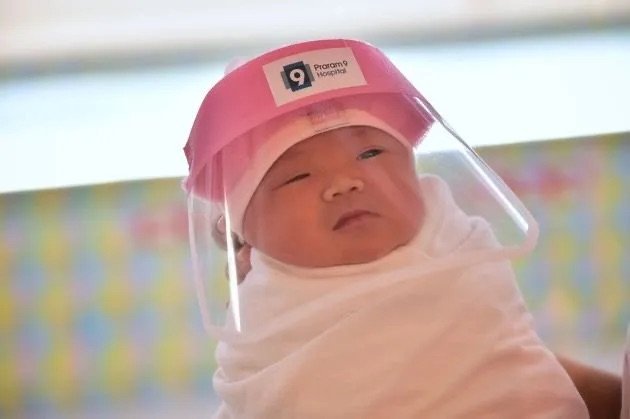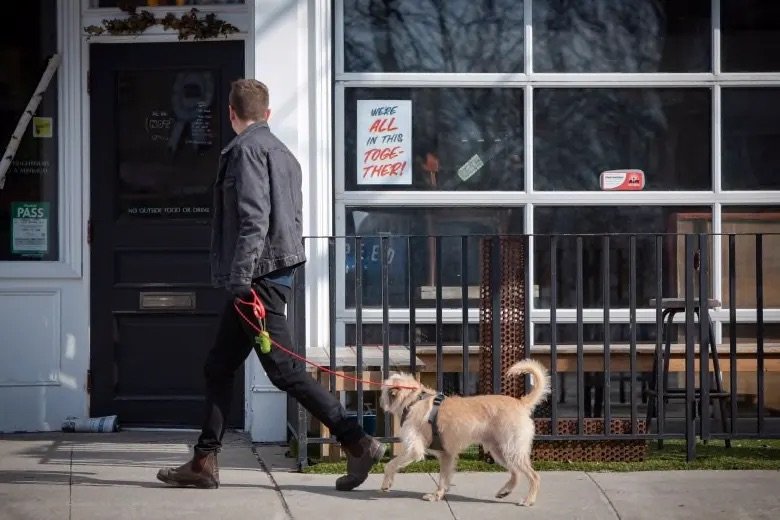Race and COVID-19
Get the data (bonus, it helps smash stereotypes)
Welcome to At The End Of the Day, a newsletter that boils down a firehose of news to a perspective that puts people first – family, friends, community, social fairness and the greater good.
Walking and yelling can be your new hobby, too
We’re still in the midst of revamping our work and life habits and the news has been particularly cruel this week (thinking of Portapique, Nova Scotia).
Last night, I knew I needed to get out for a brisk walk to blow off steam so I called up a friend and hit the pavement.
Gesticulating wildly and talking too loud are fine when the streets are empty (finally, in my element).
We talked about whatever we wanted for an hour and by the end, we were laughing about face shields (“but make it fashion”) and what it would take for us to just casually slip one on to leave the house.
I just got a few face shields in the mail from my resourceful mother-in-law (“Hi, Wendy!”) so I guess I can test this out for myself pretty much anytime. Look out, world.
Source: HuffPost Faceshields, cuter than you thought
TLDR
The violence in Portapique, N.S., and resulting grief, is just beyond. If you can, support an organization like Red Door Shelter or Canadian Women’s Foundation
Smash that stress and go for a walk while you yell and laugh on the phone with a friend
Get that race data
Earlier this month, it was reported in the U.S. that Black people are disproportionately dying of COVID-19. In Chicago, Black Americans make up 30% of the population but 70% of recorded deaths due to COVID. [1]
Why? For now, those in public health are considering factors such as poverty and limited access to medical care while medical researchers continue to learn how underlying conditions, such as diabetes or heart disease, affect risk of COVID-19.
And what are the numbers in Canada? We don’t know. Ontario isn’t interested in creating that kind of data. [2]
Yesterday, however, the city of Toronto made the right choice, announcing it will begin tracking data on race and COVID. [3]
As Toronto Board of Health chair Joe Cressy said:
“There are two stories to this pandemic. The first was early travel-related cases. And the second is how COVID-19 preys on the most vulnerable,” he said.
A few years ago, before COVID, when I began researching Canada’s attitudes on race for a work project, I had to confront how I felt about keeping race-based statistics. Turns out, in 2016, I didn’t know what to think. I learned how reluctant Canada is to track this kind of data. Then I saw how progressive institutions that value data, such as universities, started tracking voluntarily-given statistics on race. [4]
I caught Dr. Kwame McKenzie, a Toronto doctor who studies health and race, last week on the news and found he said it best: “You can guess or you can know, and I’d rather know.”
Use data to smash racist stereotypes
Remember January and February? Our news was dominated by pipeline protests. Back then, according to polls, the top concern for Canadians was the environment (pause for a single tear). [5]
Wet’suwet’en hereditary chiefs opposed a Coastal GasLink pipeline that was approved to cut through traditional Wet’suwet’en lands without their consent, leading to blockades that brought trains to a standstill.
Canadians debated this inconvenience. I remember listening to radio news stories, tense, unsure of what would come out of the mouths of people with tickets in hand, being interviewed at train stations. Would it be racist?
It’s possible to be personally and economically inconvenienced (coronavirus, anybody?) and still have a grip on what’s right and wrong.
At the time, I felt the nation was learning about the difference between band councils and hereditary chiefs and therefore, learning about the Indian Act.
But it was also a time of vicious, old-fashioned racism, the kind that just won’t die. [6]
This is a good time to address one racist stereotype in particular. Some Canadians are so attached to the stereotype that Indigenous people just want government handouts that they will write actual letters to a Senator to say so. [7]
But let’s take a second to think about where we’re at right now with COVID. Every day since the beginning, Prime Minister Justin Trudeau has announced financial supports for Canadians and we absolutely expect them.
When the federal government is responding to the COVID crisis by pumping previously unfathomable sums of money into the hands of Canadians out of work, it’s a real time to reckon with who gets what.
Earlier this month, the Yellowhead Institute at Ryerson University published numbers on Indigenous communities and COVID support from the government. Per capita, the funding amounts to an average of a one-time payment of $220. [8]
Of course, you know that CERB gives Canadians $2000 per month for four months.
Compared to the $82 billion being made available to assist Canadians and businesses during this difficult time, as outlined by Grand Chief Billy Morin of Treaty 6, the $305 million earmarked for Indigenous peoples represents 0.003% of funding being offered.
Data matters for so many reasons including that you can use it to smash racist stereotypes with straight facts.
In a pandemic, when the only things we can do are stay home and wash our hands, what do you say to people who live in communities where homes are inadequate or crowded and there is no clean, running water? [9]
There are ways to be part of the solution and one simple way is to grow your own awareness. Do battle with your own biases. If there’s anything that COVID is waking us up to, it’s deep inequities. Who are you and where does your privilege lie?
TLDR
Growing your awareness is an action
Racism is learned over time. Take the time to unravel it by talking about it with your friends. You are an influencer in your world
I’m thinking about systems and how they can change. If you are too, forward this newsletter to a friend who might like it.
And as ever, let me know what you think. You can also email ateodletter@gmail.com.
Thank you so much for reading. Hope you have a cake or snack to attack tonight to unwind. Seriously, try the walk and yell. I highly recommend.
Hannah
Source: CBC News “We’re all in this together!” Really? Let’s make it real
[1] In Chicago, 70% of COVID-19 Deaths Are Black
[4] U of T to track race-based data of its students
[5] Data Dive with Nik Nanos: The coronavirus’s economic gut punch has hit Canadians hard
[6] Indigenous people facing more racism due to blockades
[7] Senator who posted racist letters about Indigenous people balks at cultural sensitivity course
[8] No Such Thing As Natural Disasters: Infrastructure And The First Nation Fight Against COVID-19
[9] Eabametoong First Nation declared emergency after tests showed high THMs level in the water



